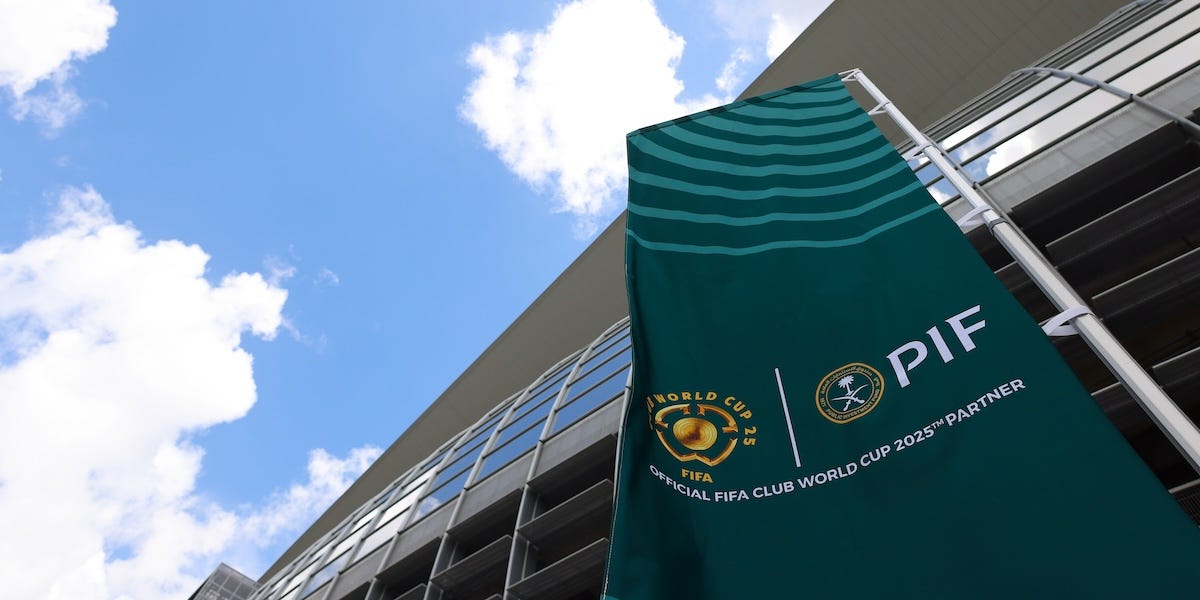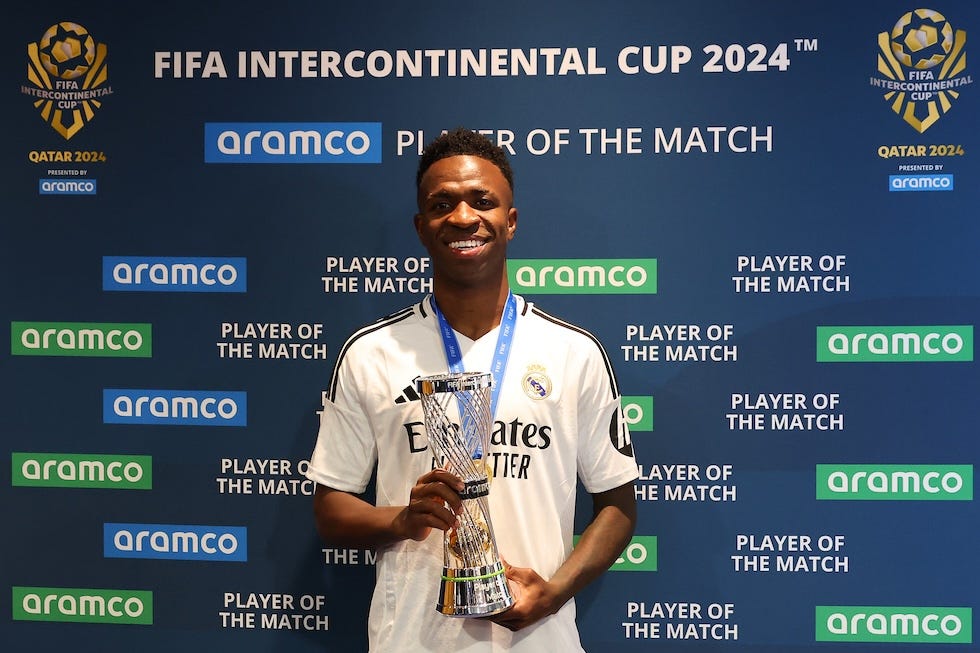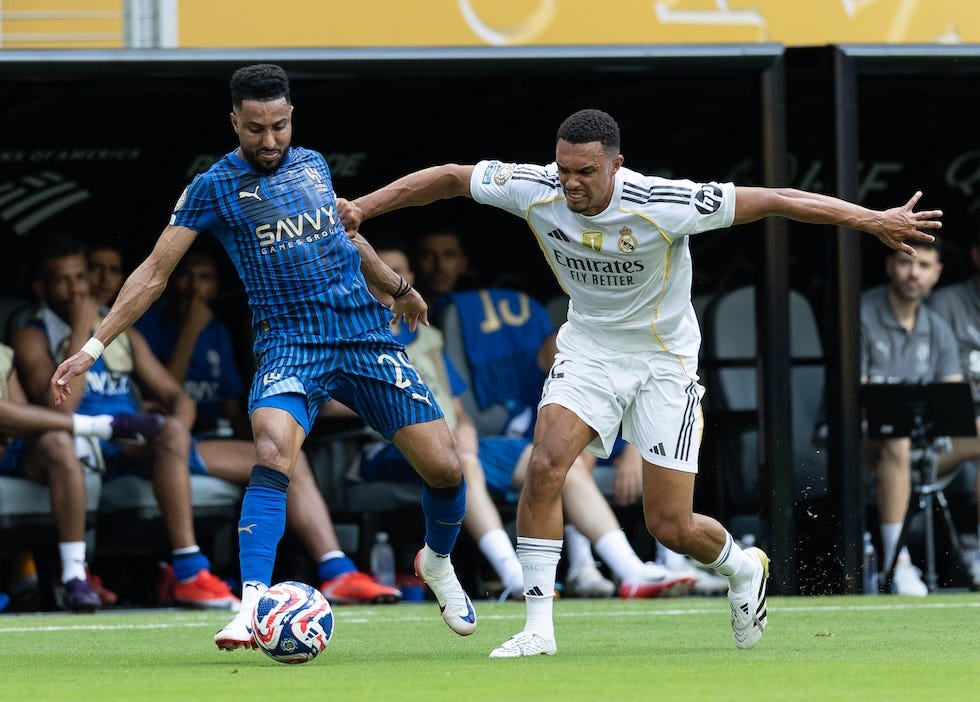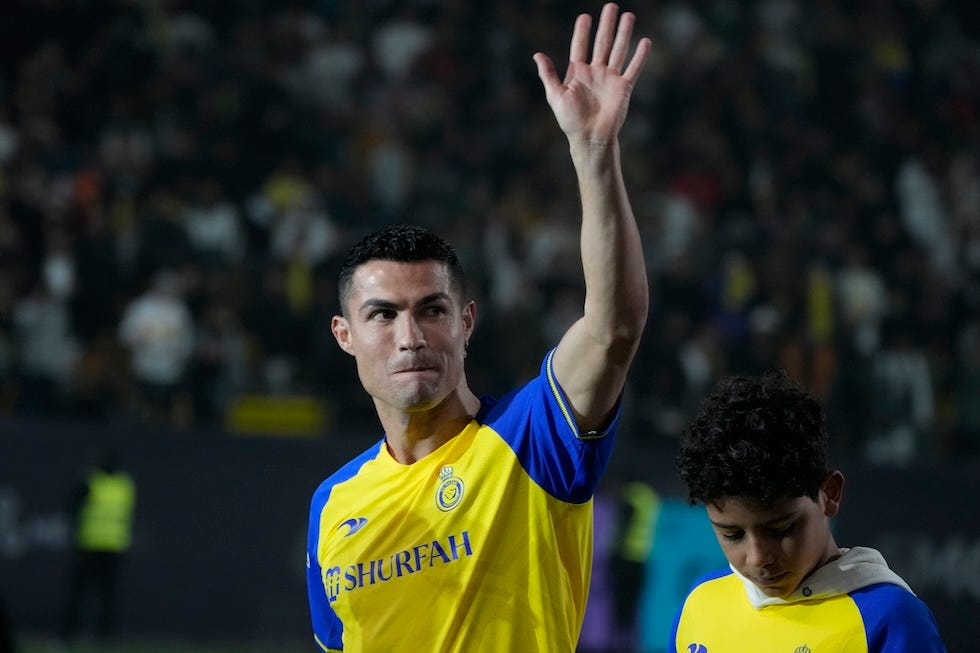Without Saudi Arabia's Money, the Club World Cup Would Have Been a Failure
Saudi authorities indirectly financed the lavish prize pool - and more - convincing many teams to take part.

For the past week, the new Club World Cup has been underway in the United States. For the first time, it features a 32-team format and is intended to be held every four years. It’s a tournament born amid many challenges, because it adds a significant number of matches to an already crowded calendar, raising concerns about excessive physical strain on the players, and then for all the economic issues surrounding it: from the start, the Club World Cup aimed to be a very wealthy competition to attract the world’s most prestigious teams and ensure they take it seriously, but it struggled to find sponsors and meet the financial goals FIFA had set for it.
If the Club World Cup will not be a failure from an economic point of view, it is mainly due to Saudi Arabia: its large investments have been crucial to cover the lack of international partners of FIFA. Saudi Arabia has been spending a lot of money on sports, especially football, for some time now, in an attempt to clean up its image and gain (or rather buy) international legitimacy, given that it is an authoritarian country that systematically limits many freedoms and rights.
Interest in the 2025 Club World Cup was also sparked by the relationship between Mohammad bin Salman, the Saudi Crown Prince and de facto ruler of the country, and FIFA President Gianni Infantino, as well as for strategic reasons. The expansion of the number of participants has also given Saudi clubs the opportunity to qualify, and therefore to compete in a top-level international tournament, competing against European clubs.
This large financial participation of Saudi Arabia in the tournament is problematic not only for ethical reasons (for the fact that FIFA helps to legitimize a dictatorship), but also for a question of conflict of interest. Among the Saudi teams in the tournament there is in fact Al-Hilal, which is controlled by the Saudi government. It is the team that a few weeks ago hired as its new coach the Italian Simone Inzaghi, taken from Inter, with a two-year contract worth €25 million net per season: he has thus become the second highest paid coach in the world after Diego Simeone of Atlético Madrid.
The Saudi authorities have in short had every interest in supporting Infantino's project. They did so first of all through the state oil company Aramco, which since April 2024 has been FIFA's main partner and therefore the main sponsor of all its competitions. It is a huge company, which in 2024 had an estimated market value of $1.7 trillion, which is the fifth most valuable company in the world. In the last year it declared profits of over $106 billion. The agreement between Aramco and FIFA is for four years (from 2024 to 2027) and the economic value is not public, but it is estimated that it brings FIFA around $100 million annually.

Saudi Arabia’s support for the Club World Cup went far beyond sponsorship and extended to the issue of broadcasting rights. Initially, FIFA had great difficulty securing offers to televise the event, partly due to overly optimistic expectations about its value: the goal was to sell broadcasting rights for $4 billion, but no broadcaster was willing to pay that.
In December 2024, the situation was resolved with the intervention of DAZN, which ultimately paid $1 billion for exclusive rights. This was far below FIFA’s expectations but still an enormous - and perhaps excessive - amount for DAZN. Many have found the operation suspicious or at the very least lacking transparency. It didn’t seem like a sound investment, especially considering the limited interest in the competition: in 2024, DAZN’s total revenue was $3.4 billion, with losses of $1.4 billion in the previous year.
DAZN’s surprising move became slightly less surprising two months later, in February of this year, when it sold a minority stake (between 5 and 10%) to SURJ Sports Investment, a company controlled by the PIF, Saudi Arabia’s sovereign wealth fund. The price paid for the stake? Exactly $1 billion - again, hard to justify based on DAZN’s real market value. Then, in March 2025, FIFA announced the total prize pool for the Club World Cup: once again, $1 billion.
The prevailing view among international experts in sports and politics - such as The Guardian journalist Barney Ronay - is that Saudi Arabia financed DAZN’s acquisition of the tournament’s broadcasting rights, providing FIFA not only with the visibility it needed but also with the funds to establish a substantial prize pool. For comparison, the total prize pool of the last edition of the Champions League, the most prestigious European tournament, was $2.7 billion - but that tournament lasted an entire season (not just one month) and features 52 clubs starting from the qualifiers.
This massive prize pool was likely essential to quelling discontent among many clubs, especially in Europe, which were undecided about whether to take part. In June 2024, then-Real Madrid coach Carlo Ancelotti told to Il Giornale that his club would decline the invitation due to financial concerns (the original interview is no longer online, but several websites reported on it, and there was a sort of retraction). The club soon distanced itself from Ancelotti’s comments, in which he had warned that other clubs might refuse the invitation as well - suggesting that such concerns were widespread. In the end, however, no invited club backed out.
On June 5, FIFA announced a new sponsorship deal for the Club World Cup, this time with PIF, for an undisclosed amount. This further confirmed Saudi Arabia’s deep involvement in the event while also raising conflict of interest concerns, as PIF owns Al-Hilal - Simone Inzaghi’s new team.

As mentioned, Saudi Arabia’s goal is not only to improve its international image but also to restructure its economy to reduce dependency on oil production, in line with the ambitious Vision 2030 plan. Investing in the global football economy is one of the government’s key tools and will culminate in 2034, when Saudi Arabia hosts the national team World Cup on its own soil.
Saudi Arabia began investing in global football in October 2021, when it purchased Newcastle United, an English Premier League club, for £305 million (over $400 million). The deal was again carried out by the country’s sovereign wealth fund, which Bloomberg estimates to manage assets worth nearly $1 trillion.
The decision to actively engage in the financial side of international football was made by Mohammad bin Salman, the Crown Prince of the Al Saud dynasty - which rules Saudi Arabia under an absolute monarchy - and, since September 2022, also the country’s Prime Minister. At the end of 2022, Bin Salman was frequently seen in the VIP stands of World Cup matches in Qatar, alongside Emir Tamim bin Hamad Al Thani and FIFA President Gianni Infantino. In early 2023, Cristiano Ronaldo - one of the world’s most famous players - officially joined Al-Nassr, with a total salary of $200 million per year.

Then in the summer of 2023, the PIF took control of four Saudi Pro League clubs - Al-Nassr, Al-Hilal, Al-Ittihad, and Al-Ahli - kicking off an extravagant transfer campaign that brought some of the world’s most well-known players and coaches to the Gulf. The goal was to make the local league internationally renowned, putting it on par with European leagues and boosting the technical level of Saudi Arabia’s top teams.
In the long run, this was supposed to legitimize the country’s bid to host a World Cup. So far, that hasn’t gone exactly as hoped by the Saudi government. Nonetheless, Saudi Arabia has been hosting international football events on its soil since 2018. It started with the Italian Super Cup, followed in 2020 by the Spanish Super Cup, and in 2023 hosted the Club World Cup under the old 7-team format.
The original article was published in Italian on Il Post, Sunday 22 June 2025.




